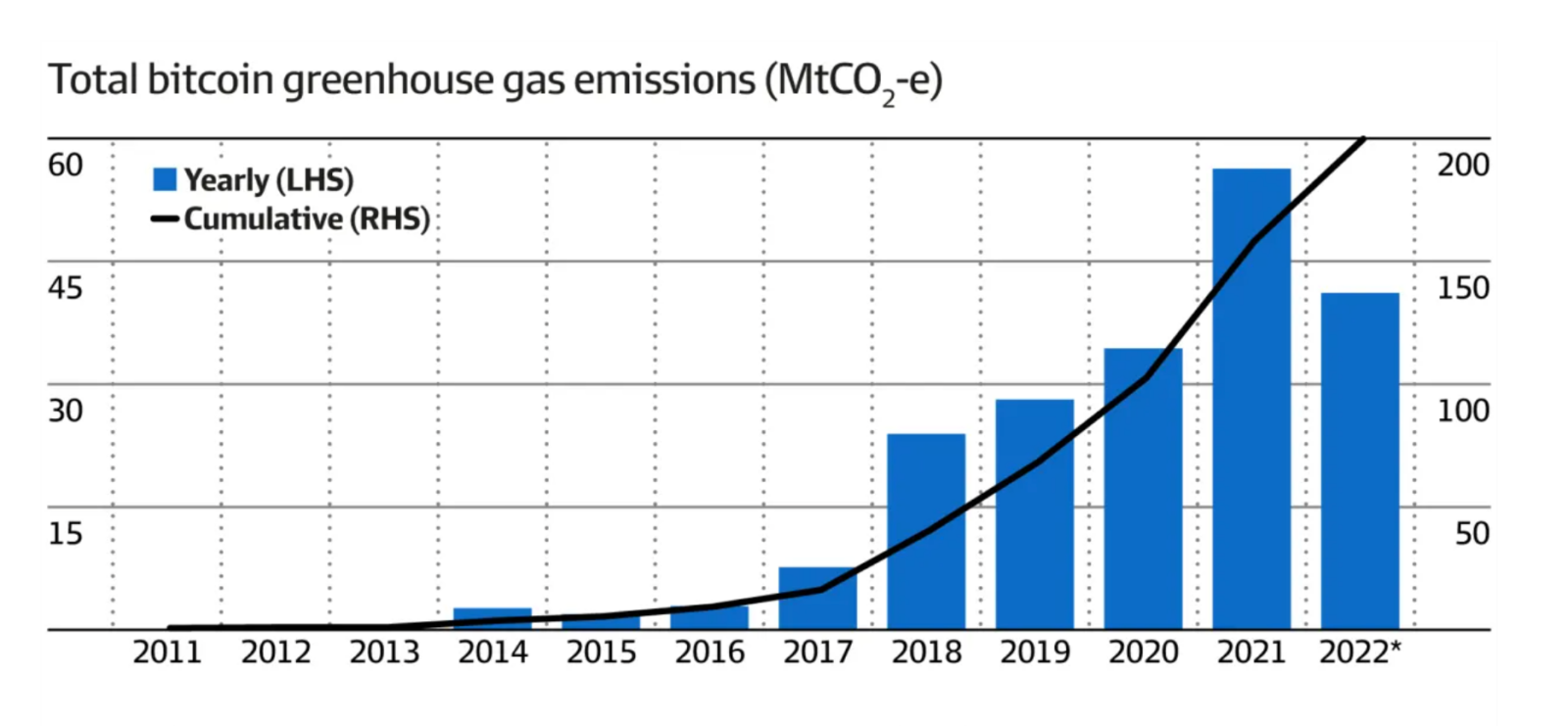Climate Implications Driving Changes in Cryptocurrency Mining

Source: Financial Review
Bitcoin’s impact on the environment is equivalent to gold mining, say researchers from the University of Cambridge. The process of mining Bitcoins uses large amounts of electricity, primarily from fossil fuels like coal and natural gas. Because of these fossil fuels, Bitcoin mining contributed 0.1% to total global emissions in 2019, similar to that of countries like Chile or Bahrain. While Bitcoin-related emissions hit an all-time high in 2021, they dropped 14% this year. The decline is due to a significant decrease in mining profitability (and therefore energy use).
But other experts say that cryptocurrency’s climate impact is less like gold mining and more like beef production, according to a new paper from the University of New Mexico. The researchers estimated that every Bitcoin mined in 2021 under the “proof of work method” added 113 metric tons of carbon dioxide to the atmosphere — a 126-fold increase from the 0.9 metric tons per Bitcoin in 2016. In contrast, blockchain competitor Ethereum claims to have reduced its energy consumption by 99% by switching from proof-of-work to the proof-of-stake model.
“We find no evidence that Bitcoin mining is becoming more sustainable over time,” said UNM associate professor of economics Benjamin A. Jones in a press release. “Rather, our results suggest the opposite: Bitcoin mining is becoming dirtier and more damaging to the climate over time.”





